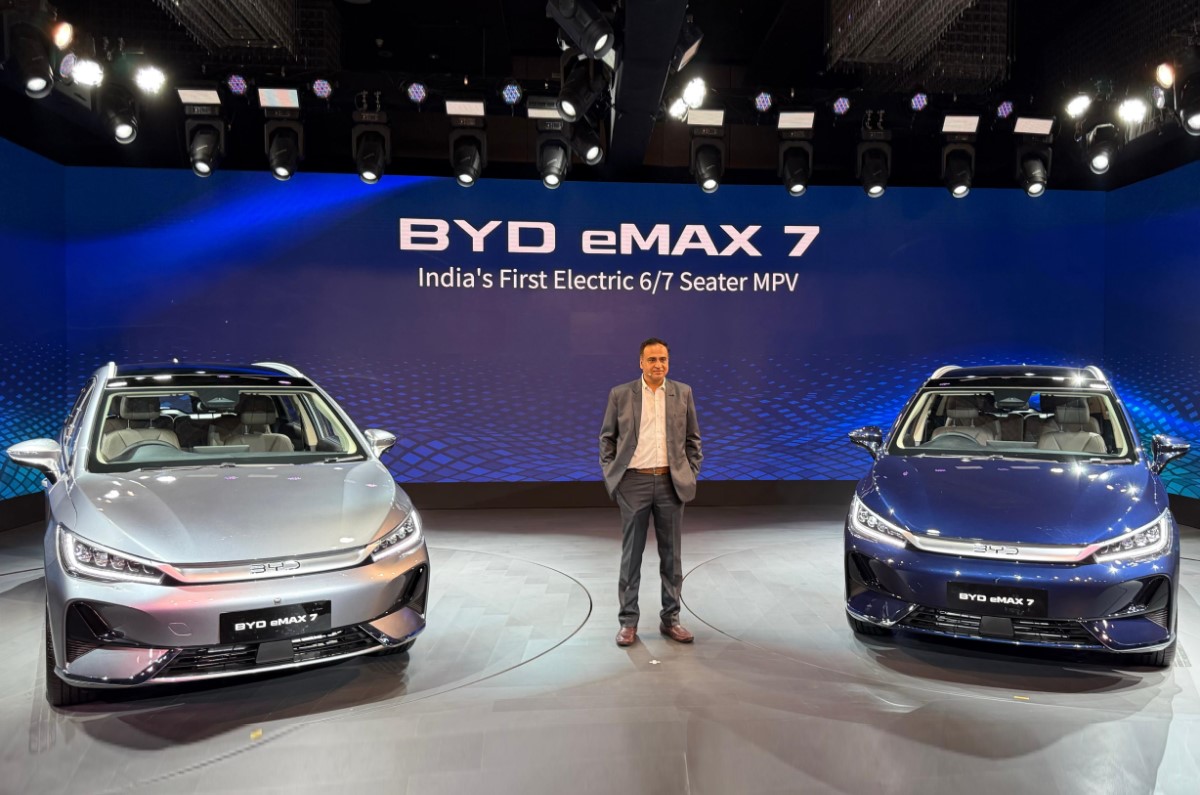You’re reading an excerpt from the Today’s WorldView newsletter. Sign up to get the rest free, including news from around the globe and interesting ideas and opinions to know, sent to your inbox every weekday.
In a landmark address to Congress, Japanese Prime Minister Fumio Kishida hailed the United States as an “indispensable” nation. And he voiced sympathy for Americans “who feel the loneliness and exhaustion of being the country that has upheld the international order almost single-handedly” over the past decades. But, Kishida stressed, Japan was ready to share the United States’ burden.
It’s been close to a decade since a Japanese leader has come for a state visit and Kishida seemed to be making up for lost time. At a state dinner at the White House on Wednesday, he was fed salmon and steak and serenaded by legendary musician Paul Simon. He participated in a landmark trilateral security summit with President Biden and their counterpart from the Philippines, President Ferdinand Marcos Jr. And he signaled throughout how Japan was shaking off decades of official pacifism in favor of a more robust security role in Asia.
The United States and Japan hammered out dozens of new agreements on defense cooperation. The countries’ militaries will forge a new joint command structure that will better enable them to counter the putative threat posed by China, especially to the self-ruling island of Taiwan. And they will, together with Australia, develop a new Pacific-based air missile defense network.
“This is the most significant upgrade in our alliance since it was first established,” said Biden following meetings at the White House on Wednesday.
“On the spaceship called ‘Freedom and Democracy,’ Japan is proud to be your shipmate,” Kishida told Congress, with a rather fanciful metaphor. “We are on deck, we are on task. And we are ready to do what is necessary.”
Taking center stage in Washington offered Kishida a brief reprieve from mounting woes at home, where support for his government has slipped amid a scandal over political fundraising. In the United States, the Japanese prime minister could point to the major transformation ushered in under his watch, a change in Japan’s strategic outlook that was first driven by Kishida’s late predecessor Shinzo Abe.
“In the past two years, Japan has taken previously unthinkable steps to bolster its defense capabilities, including increasing its defense budget to 2 percent of gross domestic product over five years, making it the third-largest in the world, and acquiring ‘counterstrike’ capabilities to hit enemy bases with long-range missiles,” detailed my colleague Michelle Ye Hee Lee.
Kishida, a Hiroshima native who has spoken forcefully about the need for nuclear disarmament, is not a hotheaded militarist. But, as he told Congress, he views China’s “current external stance and military actions” as “the greatest strategic challenge, not only to the peace and security of Japan but to the peace and stability of the international community at large.” And he has worked to boost Japan’s capacity to react to this perceived challenge.
“He’s picked up on some of the important elements of the Abe revolution and advanced them in subtle and effective ways. He’s been able to do what Abe wasn’t able to do,” said Daniel Russel, former assistant secretary of state for East Asian and Pacific affairs, to my colleagues. “He’s got dovish politics and aura, but what that really means is that he’s trusted in ways that Abe never was.”
Now, Kishida is positioning Japan at the heart of the “latticework” of alliances, as Biden officials put it, that the United States hopes will undergird their interests in Asia. This includes the “Quad” linking Japan, Australia, India and the United States; the new understandings forged between the Philippines, the United States and Japan in the face of Chinese assertiveness in the South China Sea and over Taiwan; and an increased Japanese role in the next stage of naval security collaboration between Australia, Britain and the United States.
If Washington policymakers get to realize the long-sought “pivot to Asia,” it seems Japan must be the key hinge in that turn.
“Many describe NATO as the United States’ indispensable alliance—and it remains a top priority,” wrote Jeffrey Hornung in Foreign Affairs. “But given the geopolitical shift to the Indo-Pacific, it is time to make the U.S.-Japanese alliance far more central to American grand strategy.” He argued that the U.S.-Japan partnership should be the “hub” around which all the “spokes” of these other groupings in the region should revolve.
Beyond expanding defense cooperation, Kishida also stressed Japan’s shared values with the United States. That’s important at a time of growing fatigue in the West over the demands of supporting Ukraine as it resists Russian invasion, and apparent indifference among countries in the Global South. Kishida cajoled U.S. lawmakers to continue aiding Kyiv, with new funds stymied in Congress.
“My visits to Kyiv and Bucha last March had a very significant impact on me,” Kishida told Lee in an interview that preceded his arrival in Washington, referring to the Ukrainian capital and the nearby town that was the site of a grisly massacre carried out by Russian troops. “Actually touching the harsh and tragic reality of the war through the visit made me more determined in pursuing … lasting peace in Ukraine as soon as possible.”
Kishida pointed to Japan’s own significant contributions to Ukraine’s cause, including more than $12 billion in aid and support in boosting Kyiv’s anti-drone detection capabilities. U.S. analysts thrill at Japan’s willingness to engage in a conflict far from its neighborhood.
“Unlike many Western democracies, Japan has avoided the worst impulses of populism and isolationism,” wrote Richard Armitage, a former U.S. deputy secretary of state, and Joseph Nye, a Harvard political scientist, in a report calling on Tokyo and Washington to even further deepen their alliance. “Its role in supporting a free and open international order grounded in the rule of law is therefore more important than ever.”
The subtext here, as it is on so many fronts, is China. Kishida and Biden’s close embrace is a reaction to Beijing’s perceived expansionism, and recent record of bullying, including in its maritime dispute with the Philippines.
“The Indo-Pacific comes down to two strategic visions,” Rahm Emanuel, the U.S. ambassador to Japan, told Washington Post columnist Josh Rogin in an interview. “One is that this is China’s neighborhood and China makes the rules. The other is that the United States is a permanent Pacific power that you can bet long. The U.S. version is gaining ground.”
“My message to Xi Jinping is, ‘Don’t change,’” Emanuel added, suggesting that the Chinese president’s behavior was strengthening the United States’ hand. “Keep it up at home and in the neighborhood. He deserves recognition for all his assistance.”

 6 months ago
70
6 months ago
70




























 English (US)
English (US)